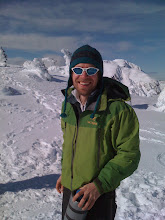Citing a hotter, drier climate and the threat of “severe economic and environmental impacts” from climate change, the governors of California, Washington, Oregon, New Mexico and Arizona in February created the Western Regional Climate Action Initiative. By signing on to the initiative, the governors agreed to come up with a regional goal by this summer for reducing emissions of carbon dioxide and other greenhouse gases and develop a plan by next summer to reach that goal.
Utah, Manitoba and British Columbia have since signed on.
“We certainly can’t solve global warming on our own,” said BreAnda Northcutt, a spokeswoman for the California Environmental Protection Agency, “so it’s important that all these states get together.”
Tony Usibelli, the director of Washington’s energy policy division, said the bigger the group, the easier it will be to find economic ways to reduce emissions, whether by setting an overall cap and allowing entities to buy and sell the rights to emit, or by some other method.
“There is a value to looking at a bigger footprint,” he said.
Nevada, Wyoming, Colorado and the Mexican state of Sonora are participating as official observers to the group, Usibelli said.
Alaska, for now, is just watching.
Larry Hartig, commissioner of the Alaska Department of Environmental Conservation, said he has discussed the issue with his counterparts in other states and that Gov. Sarah Palin has met with Washington Gov. Christine Gregoire and B.C. Premier Gordon Campbell.
“I know that they’ve talked on climate change [and] energy efficiency, and that Governor Palin has been very interested in following those discussions,” he said Tuesday. “She’s asked me to do the same with my counterparts, and to look for opportunities to support those efforts.”
Climate change, renewable energy and carbon sequestration were hot topics last month in South Dakota at the Western Governors’ Association annual meeting, which Palin attended. One workshop focused on the climate action initiative and the Climate Registry, a recently formed collaboration aimed at developing a standardized way for states to inventory greenhouse gas emissions.
Hartig recently explained the state’s hesitation to join either effort by saying Alaska was “a bit different” from other states. Specifically, a good chunk of its emissions come from transportation and power generation. Being so dependent on air transportation, he said, “there’s not a lot of alternatives out there to hydrocarbons.” Likewise, scattered communities are hard to connect to a centralized electric grid and may have to keep using diesel generators to make power.
Hartig said it might make more sense for Alaska to focus on trapping and storing carbon dioxide rather than reducing consumption of fossil fuels. He added that it would be hard to set a target for emissions reductions — as states are required to do before joining the initiative — without a better understanding of where the emissions are coming from. A rough inventory of emissions sources was completed in February, and the DEC is refining and updating the study now.
The department hopes to release an updated study by the end of the year that will break down emissions by industrial sector, Hartig said.
Buck Sharpton, the vice chancellor for research at the University of Alaska Fairbanks and a member of Palin’s subcabinet on climate change, said renewable energy could ultimately help reduce rural energy costs. But he warned that cutting emissions abruptly could be harmful to the state’s economy.
“We need to make sure that we can keep our state economically sustained,” he said.
Others suggest the harm lies in waiting.
“We’re missing tremendous opportunities by not being part of this,” said Deborah Williams, head of the environmental group Alaska Conservation Solutions and a former special assistant to the secretary of the Interior.
Williams acknowledged it would be hard to cut emissions from air travel but said the state had great opportunities to develop renewable energy.
Northcutt, of the California EPA, said studies done in California have shown that reducing emissions would encourage innovation that could then be marketed across the country.
“Our governor (Gov. Arnold Schwarzenegger) has really seen it as an economic opportunity,” she said.
Northcutt added that by joining the initiative early on, states will at least have a role in negotiating the regional emissions cap. States that join later will simply go along with the existing agreement.
The long-term goal, she said, is to increase participation in the Western initiative and ultimately link up with other regional efforts.
“Everyone’s invited,” she said.

No comments:
Post a Comment